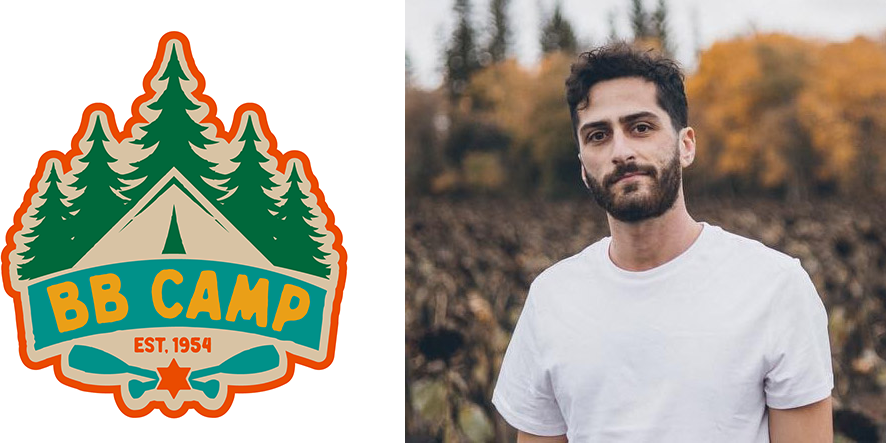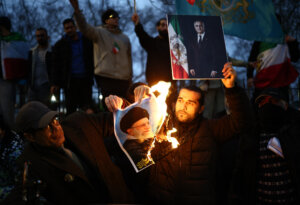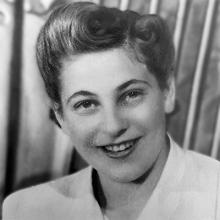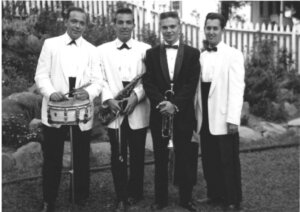Opinion
What the sordid BB Camp affair says about our community

By BERNIE BELLAN (Posted April 23) I’ve been asked by quite a few people why I’ve stopped writing my “Short takes” column for the Jewish Post newspaper. (I still write opinion pieces for this website on occasion.)
Frankly, I was tired and needed a break from churning out what had become a regular opinion piece that I initially began to write over 15 years ago and what I thought would be only an occasional column when I first started doing it.
But what’s happened within the Winnipeg Jewish community these past two weeks has motivated me to offer an opinion piece, once again – on the subject of how we define “Jewish community.”
I also want to make it clear that in every instance where I have written an article for the paper that is now under new ownership I’ve tried to keep my own opinions separate from whatever subject it is that I’ve chosen to write about. (I wish that other writers for the paper could attempt to do the same. There is a clear distinction between reporting and editorializing.)
This latest controversy over what’s happened at BB Camp and the removal of Jacob Brodovsky as camp co-executive director has really galled me (and, by the way, someone with a title should not have that title capitalized unless it is a part of that title, so that, for instance, Mark Carney is the prime minister of Canada, but his title is Prime Minister Mark Carney. In the same way, the repeated references to Brodovsky as “co-Executive Director” are misplaced, unless he is doing something like signing a letter as “Jacob Brodovsky, co-Executive Director, BB Camp.”)
Just how do we define our “Jewish community” these days? As I noted in an article that you can read at https://jewishpostandnews.ca/wjn/new-report-from-pew-research-center-provides-interesting-information-about-high-number-of-jews-who-still-identify-as-jewish/“caring about Israel” only placed sixth highest among ten attributes that Jews in the United States said was an essential element of what defined them as Jewish in a poll that was released in 2020.
Of course, everything has changed since October 7, 2023. But, with a war continuing well past the date when any of us expected it to be over – and with a good many hostages still not released, are we to define unwavering allegiance to an Israel that itself is so bitterly divided as some sort of litmus test for who can call themselves a “good Jew?”
I tried to make it clear in my article about BB Camp elsewhere on this website (at https://jewishpostandnews.ca/faqs/rokmicronews-fp-1/bb-camp-finds-itself-embroiled-in-controversy-over-camp-director-jacob-brrodovsky/) that I don’t know Jacob Brodovsky personally and I was in no position to assess the accuracy of comments that were being made about him.
That being said, however, the degree to which Brodovsky is being judged over his apparent failure to give unswerving support to the State of Israel, especially at a time when Israel is so deeply mired in controversy over what has been happening in Gaza (also the West Bank to a lesser extent) is a perfect example of how someone’s political views have unfairly tarnished their reputation.
I had never thought of BB Camp as a “Zionist” camp; it was rather a fabulous camp where Jewish kids could meet (also a fair number of non-Jewish kids) and have a great outdoor experience within a Jewish milieu. That is not to say that it was the polar opposite of Camp Massad, which wanted kids to experience being in a Hebrew-speaking Jewish milieu, it simply didn’t place the same kind of emphasis that Massad did in playing up the Israel connection.
Winnipeg’s Jewish community, however, has changed over the years. As the number of immigrants to this community from other countries, in particular Israel, has grown, the identity of the community – if it can be said to have one, has changed appreciably. I have argued though, that the 2021 census figures don’t lend credence to the argument that there are many thousands of newcomers to Winnipeg who call themselves Jewish. According to the 2021 census there were only 1,435 individuals who gave “Israeli” as their ethnic origin, for instance. One might have expected that figure to be quite a bit higher, based on the message that we were constantly receiving from our Jewish Federation that our Jewish population had grown greatly.
Now, while it is true that there may be a great many other individuals who gave different ethnicities but who may have also lived in Israel, my point is that there has always been a tendency to exaggerate (especially on the part of our Jewish Federation and other Jewish organizations) the number of Israelis living in Winnipeg. In fact, as I showed in several different articles in 2022 and 2023 (which you can find on my website jewishpostandnews.ca simply by entering the words “Jewish population of Winnipeg” in the “search archives” category), the number of individuals in Winnipeg who identify as Jewish, either by religion or ethnicity has remained quite static over the years.
I often tell people that a few years back though that I was part of a conversation with a group of Israelis – most of whom had emigrated to Israel from Eastern Europe, and the discussion turned to what they were looking for from the Jewish community. There were about 15 people in that conversation and the answer I was given was that they weren’t looking to join a synagogue or even send their kids either to Gray Academy or to Brock Corydon’s Hebrew bilingual program because their kids were already speaking Hebrew.
What they did want, I was told, was to have their kids go to a Jewish camp, so that they would meet other Jewish kids and ultimately, it was their hope, marry other Jewish kids. We didn’t get around to discussing the merits of Massad or BB, but I was struck by how much of a consensus there was among all those newcomers that sending their kids to a Jewish camp was high on their priority list.
Now, I suppose it’s fair to say that the majority of Israelis who have arrived here – whatever the number is, remain deeply attached to Israel in a way that those of us who were either born in Winnipeg or somewhere else in North America do not feel to the same extent. But, in so many ways, unswerving support for what Israel – and by Israel, I mean the Israel of Netanyahu, has become a defining characteristic of what many Jews now say constitutes Jewish “identity.”
But, where does that leave a great many of us who are sickened by what has been going on in Gaza, yet still consider ourselves prideful Jews? I have read many comments about Jacob Brodovsky on another website- (some of which I note could be considered defamatory), but there are a great many other young Jews (and not-so-young Jews as well) who are also highly critical of what Israel has been doing in Gaza. Are we, too, to be marginalized and castigated for daring to criticize Israel’s behaviour and express sympathy for Palestinians?
When I was still publisher of The Jewish Post & News I lamented the inability of individuals who held views similar to those I have just expressed to find a way of meeting with one another to vent their frustration with mainstream Jewish organizations that would not countenance any overt criticism of Israeli government policy. Instead we meet each other socially and complain about how our Jewish Federation and organizations like CIJA and B’nai Brith are only interested in talking about antisemitism without talking about what is going on in Gaza.
And so, someone like Jacob Brodovsky becomes a symbol for all that the supposedly “pro-Israel” Jews say is a betrayal of support for the State of Israel.
To them, I say, no, Jacob Brodovsky is not a traitor; he is quite typical of a great many other Jews, both young and old, who have disengaged themselves from offering unqualified support for Israel and who have expressed sympathy for Palestinians. Whether Brodovsky was competent in his position is a wholly separate matter that is not at issue. What is at issue is the rapidity with which the BB Camp Board succumbed to outside pressure to remove their co-executive director – and how much that angers so many of us who will probably remain on the margins of a community that has no room for a diversity of views.
If you would like to comment on this post (or any other post), click on the “”Click to comment” box at the bottom of this page and send us your comment. If there’s anything defamatory in your comment it won’t get posted. Otherwise though, we’ll add it to the end of this post and mark it as a comment so long as you include your full name in the comment.
To illustrate, here is an email we received earlier today from a BB Camp staffer who wanted to know how he could get a letter to the editor of the Jewish Post published. I gave him the contact information, but I also asked him to send me whatever he was sending to the print paper.
Here is what he wrote (which is also something he said he had sent to the BB Camp Board):
To the BB Camp Board
I am almost at a loss for words to describe what I’m feeling following the board’s recent email announcing the departure of Jacob Brodovsky as co-Executive Director of BB Camp.
Disgusted, appalled, and ashamed might be good places to start.
I have been a BB camp member for 11 years, the final 4 of which were under Jacob and Lexie’s leadership, both as a camper and as a staff member. During my time at BB, I never felt as welcomed, supported, and empowered as I did with Jacob as my director. In his short time at the helm, I witnessed a meteoric improvement in BB camp life. Our site on Town Island looks fantastic; staff are happy, and more competent; and most importantly, the children who come to Town Island arrive at the safest and most inclusive version of BB camp that there has ever been.
The decision to “amicably part ways” with Jacob is disgraceful. While I was surprised by the publication of Jacob’s social media “likes,” and while I may have considered those “likes” a display of poor judgement, I did and do not feel that his actions were in any way anti-Semitic or anti-Zionist. Jacob has always supported Israeli programming at BB camp, and it was not difficult for me to digest the idea that he might support Israel and also support a ceasefire and the basic human rights of Palestinian people.
The response from the board and from the BB camp community at large have been far more appalling and, frankly, far more violent than anything I have heard Jacob Brodovsky say, or seen him do. The apology he was forced to make, the constant calls for his head, and the harsh, blown out of proportion coverage of Jacob’s social media activities have left me feeling sick to my stomach.
I understand that at this point, little can be done. The Board has made its decision, and there is no going back. But I am incredibly disappointed that you would turn your back on a good person like Jacob Brodovsky; a person who has given much of his life trying to make BB camp a better place and who, in my experience, succeeded.
I have always been proud to be a BB camper – but today, I feel ashamed. With the board’s recent decision, and the community’s response to this issue, I am not sure to what extent my pride can ever recover. That’s a scary feeling, and I hope that you hear it.
Regards,
Elijah Neville
Here’s another email that we had received 2 days ago about the BB Camp affair:
This is an email that l I wrote the Jewish Federation that was never answered:
After receiving a mass email from the federation regarding the current leadership of the BB Camp, I thought it was my responsibility as a Jewish person, a member of this community, and a Jewish scholar and educator to express my discomfort and criticism of what was communicated in this email.
I do not know Jacob and Lexi nor did I attend the BB camp. I am new in this city and only represent myself and my own opinions.
I was born and raised in Israel, educated in New York, and moved here a decade ago to teach for the Judaic Studies program at the University of Manitoba where I teach Yiddish, Hebrew, and modern Jewish studies. As a scholar and educator and a practicing Jew, I always advocated for pluralism of opinions and freedom of speech. I also strongly believe that people are entitled to express their opinions freely as long as they have done so as private people. No one should lose their job based on their personal social media activity (as long as they haven’t violated any law), nor should they live in fear.
At the UofM I often teach students who attended your camp and they seem to have had a wonderful experience that made their Jewish identity stronger. This suggests to me that you are doing a good and important job.
In these difficult times, I urge you not to cancel, defame, and censor alternative voices calling for peace and love of all humans. One needs to remember this community heritage of supporting human rights, equality, and democratic values. The heritage of the Peretz school, for instance, who taught students true Yidishkeyt and to be a Mentsh.
Why make Jews even more isolated than they already are? As an experienced Jewish educator, I think it is important for Jews to show they are not monolithic and can sustain their differences and stay a one big Mishpokhe.
I ask you to stand up for what is right and allow more nuanced and critical voices to be heard. This will make your campers happy and stronger.
-Dr. Itay Zutra
Here’s another email:
Thank you. I’ve appreciated your writing regarding the BB Camp Blunder and this new opinion piece had me nodding my head as I read. Your final sentence about remaining on the margins of a community due to its lack of welcoming any view that veers from a very narrow one is one I can relate to.
The “moral” of this story is of what, exactly? That Jews should be expelled from our community if they feel empathy for others? That Jews should be forced to resign from Jewish workplaces and cultural organizations because they interacted with something online that shows their nuanced levels of care and compassion? His actions were so inoffensive. What are we to learn from this?
I read a book last year called The Jews of Summer which was a non-fiction book about Jewish summer camps. A huge takeaway for me was that there were tons of options for all types of Jews. There were camps with a Zionist focus, a religious focus, a secular focus, socialist focus, Yiddish focus, etc. This mirrors our city and communities of Jews worldwide who used to be able to have layered conversations and debates about beliefs and culture and politics. Now, that’s been completely abolished. I’d be made a pariah by expressing feelings and opinions that aren’t radical.
Our heritage is one of wrestling with G-d, repair, ethics, and survival. We seem to have completely “lost the plot” (as the young people say). It’s felt nearly impossible to keep my connections with my culture when Winnipeg’s Jewish community as a whole has been lashing out with fear as their motivator.
So thank you for writing that opinion piece. It makes me feel less isolated.
Name withheld by request
Comment received April 25:
Yasher koach to Bernie Bellan for his sharp reporting and equally sharp op-ed on the “sordid BB Camp affair.” Bernie has rightfully pointed out in his reportage how power really operates in the Winnipeg Jewish Community, and how quickly institutions purporting to represent the Jewish community as a whole cave in to pressure groups. Bernie is truly a brave, independent journalistic voice, and a Winnipeg treasure.
-Mark Libin
Features
Did the Jewish Federation’s stepping in to force the firing of BB Camp co-executive director Jacob Brodovsky lead to the further alienating of many young Jews from the community?

(June 8, 2024) Introduction: We received the following email from a young Jewish Winnipegger re the BB Camp controversy, which we’ve reported on extensively on this website. We thought it important to post the email as a separate piece rather than as an add-on to an article in which we printed other emails from readers expressing their disappointment at what happened to Jacob Brodovsky, the former co-executive director of BB Camp:
Dear Mr. Bellan,
Thank you for once again cutting through the noise with your April 23rd column, “What the sordid BB Camp affair says about our community.” Your clarity and courage in calling out our rush to judgment and our narrowing definition of “Jewish identity” are deeply appreciated, especially by those of us who feel increasingly alienated in Winnipeg.
I also want to share a troubling observation about one of the loudest voices attacking Jacob Brodovsky: theJ.ca. Their articles—bylines like “Ron East” or “TheJ.ca Staff”—are, in fact, almost entirely generated by artificial intelligence. They contain no verifiable sourcing, frequently hallucinate details, and appear to be little more than a far-right newsletter running smear campaigns under the guise of “journalism.” The entire BB Camp series reads like an AI trained on extremist talking points, regurgitated daily to bully our community into silence.
As a young Jew in Winnipeg, I—and many of my peers—are horrified by the transformation we’re witnessing. What was once a warm, progressive community is now dominated by:
Bigots and Bullies: Parents threatening to pull their kids unless the camp bows to extremist demands.
Florida-style Republican Judaism: A narrow, intolerant ideology portrayed as the only “true” Jewishness.
Collapsing Leadership: Our Jewish Federation leaders, including Jeff Lieberman, have shown they lack the vision or backbone to navigate this crisis.
We stand at a dangerous inflection point. Our community is on the verge of a total and irreversible fascist takeover—an outcome no amount of regret or retrospective apologies can undo.
Please consider reading firsthand accounts from community members who have bravely spoken out:
I know this letter is anonymous and won’t be published, but I hope you see it as proof that many of us are desperate for ethical, forward-looking leadership. Thank you again for using your platform to remind us what Jewish community should mean: diversity of thought, compassion for all people, and the moral courage to call out extremism—no matter where it comes from.
This was NEVER a community of far-right Israelis. This is a shame beyond words.
With gratitude and urgency,
A Concerned Young Jew in Winnipeg
Post script: We had heard from many different sources (who all asked to remain anonymous) that the Jewish Federation’s decision to force the BB Camp board to fire Jacob Brodovsky came as a result of pressure from one or more big donors to the Combined Jewish Appeal. We sent an email to Jeff Lieberman, asking Jeff whether the Jewish Federation’s decision to force the resignation of Jacob Brodovsky as co-executive director of BB Camp came as a result of a donor (or donors) to the Combined Jewish Appeal threatening to withdraw their donation(s) this year unless Jacob were fired. I don’t think anyone would be surprised to learn that Jeff did not bother responding to my request for information.
The Jewish Federation used to advertise elections to its board in The Jewish Post & News for many years, but no longer does so (in the Jewish Post). Instead, it submits a slate of new appointees to its board to members of the current board to be rubber stamped. Is it any surprise that the donors who contribute the most money call the shots for the Federation (which is as its always been. The only difference is the Jewish Federation and the Winnipeg Jewish Community Council before it used to operate with a patina of democracy. Sadly, that is no longer the case.)
We would urge anyone on the Federation board who could give information about what led the board to force the resignation of Jacob Brodovsky to contact us. We would give full anonymity, as we have to the writer of the above letter.
-Bernie Bellan
Opinion
Am I a “Goldfish Jew”?

By BERNIE BELLAN (Posted May 11) I’ve been called a lot of names in my lifetime, but until today I had never seen myself referred to as a “Goldfish Jew.” I don’t make a habit of reading a website called thej.ca (which, by the way, played an instrumental role in having Jacob Brodovsky removed as co-executive director of BB Camp.) But, there it was: a lengthy diatribe denouncing me over my coming to the defence of Jacob Brodovsky.
It may surprise readers of this website who may have read my articles about the BB Camp controversy, but I rather like Ron East. (And Ron, if you’re reading this, you may be the most surprised of all to read that. I know how many challenges you’ve had in your life and I wish you nothing but the best.)
But you really confounded me with this line in the article in which you really went after me hard: “Bellan and his woke coterie epitomize the Goldfish Jew syndrome: virtuous but shallow, blissfully unaware of the churning antisemitic currents around them. Their moral posturing yields real-world consequences.”
Wow! “Goldfish Jew?” I tried to look it up to see whether that term has any sort of real definition. Here’s all I could come up with:
The phrase “goldfish jew” is not a term with a widely recognized meaning and may not be intended as a literal reference. The phrase could be interpreted in a few ways:
1. Literally: As a play on words, referencing a literal goldfish and its potential connection to Jewish culture. Goldfish are sometimes used as decorations or symbols in Jewish cultural contexts, like Nowruz celebrations.
2. Cultural Reference:
As a reference to a specific type of gefilte fish, a traditional Jewish dish. Some variations of gefilte fish are considered “sweet” or “savory,” reflecting the cultural preferences of different Ashkenazi Jewish communities in Europe, according to Wikipedia.
3. Jokes and Humor:
As a humorous reference, potentially based on the appearance of goldfish or a play on words involving the term “jew.” The term “Jewish” can be used in a humorous or lighthearted way in certain contexts, as seen in posts on Instagram or YouTube.
In summary: “Goldfish jew” can be interpreted in several ways, ranging from literal references to Jewish culture, to humorous uses of the term.
But none of those definitions seem to make sense if you’re trying to take me down a notch. I did respond to your long diatribe about me though – but so far I haven’t seen my comment appear following your article about me. What I wrote was that I would challenge you to reprint some columns written by your late, great father, Yoram Hamizrachi, in which he severely criticized Israel’s policies toward the Palestinians. (For those of you who don’t know who Yoram was, he was a colonel in the Israeli army who served as a liaison between the Israel Defence Forces and the Christian Lebanese forces who were battling various Muslim groups in Lebanon during the 1970s, including the Palestine Liberation Organization. Yoram spoke perfect Arabic and was a long-time writer for The Jewish Post once he immigrated to Canada in 1982. His understanding of the forces at play in the Middle East led to him being a much sought-after speaker and lecturer on the Middle East.)
Unfortunately though, Ron, I’m afraid your father, if he were still alive, would be described as “woke,” whatever the hell that means these days. So, go after me as much as you want – I’m used to be being labeled an “anti-Zionist,” even though I lived in Israel for a year myself, and have visited there 14 times altogether. I suppose the late Vivian Silver, who was killed during the October 7 massacre, would also have been described as “woke” too, because she spent so much of her life working for peace between Israeli Jews and Palestinians. But “Goldfish Jew?”
What have you got against Goldfish? I know they’r e not kosher to eat – but you’ll have to expand on what you mean by calling me one. Still, I can ask the Oxford Dictionary whether they’re willing to add the term to the list of new terms in their next dictionary. And – if you want me to send you reprints of any of your father’s columns where he calls for peaceful co-existence between Israeli Jews and Palestinians, I’d be glad to do so, and then you can publish them on your website. But wouldn’t you be worried that if you did that, you’d be called a traitor to Israel – and the Jewish Federation might even call an emergency meeting to discuss what they’re going to do about you? (What if some major donors threatened the Federation to cancel their donations in response to anti-Zionist material on your website?)
Opinion
The Moneymaker Poker Tour 2025 Is Coming To Canada

This year, the highly acclaimed Moneymaker Tour is finally coming to Canada for the first time. Previously hosted just across the US, the Moneymaker Tour’s Canadian leg marks only its second time abroad. The first time was last year’s Moneymaker Tour Aruba, which was held in October. During this leg, the Caribbean island country also hosted a USD$200,000 (CAD$285,527) guaranteed Main Event.
Following this successful overseas experience, the team behind the Moneymaker Tour, led by its namesake, Chris Moneymaker himself, will host 23 events in Kahnawake, just some minutes from downtown Montreal.
Chris Moneymaker and his poker legacy
A certified living poker legend, Chris Moneymaker is credited with kickstarting the early 2000s poker boom. A former accountant who qualified via (what was then relatively new) online satellite means, Moneymaker went on to win the 2003 World Series of Poker (WSOP) Main Event with a USD$2.5 million (CAD$3.5 million) prize. His win marked a turning point in the industry, as it convinced thousands that poker was now more accessible and promising than ever. Since then, Moneymaker has won multiple bracelets and has been included in the Poker Hall of Fame.
Over the years, Moneymaker has expanded his presence on the felt as a poker pro for ACR Poker, which is the US’ leading online poker site. Since 2001, it’s been known for its huge tourneys, secure gaming and banking methods, and an impressive roster of poker personalities. Moneymaker was officially brought on in this capacity in 2021. In recognition of Chris’ influence, the site has even begun hosting special weekly promotions called The Sunday Moneymaker, which offer supersized guarantees of up to USD$300,000 (CAD$428,397). This is, of course, aside from the Moneymaker Tour itself, which is also hosted in partnership with the operator across several US cities, nearby territories, and now in international locations, like Canada.
What to expect from the Moneymaker Tour in Canada
Set to be held from May 7-20, the Canadian leg of the Moneymaker Tour will be hosted in cooperation with local casino and cardroom Playground. As mentioned above, there will be 23 events, during which there will be a USD$980,343 (CAD$1.4 million) guaranteed prize pool across the board. From May 16 onwards, the events will be dedicated to the Main Event, where there is a USD$350,122 (CAD$500,000) guarantee.
Designed to provide an opportunity for poker players of all skill levels and backgrounds to experience their own extraordinary poker wins inspired by Moneymaker, the tour’s events notably feature considerably lower buy-ins. In the Canadian leg, for instance, the Main Event’s buy-in is only USD$805 (CAD$1,150). With this in mind, reports state that players from across Canada, the US, and other neighboring countries are expected to join in.
Per executives behind the Moneymaker Tour, this foray into the Canadian poker scene will ideally set the scene for future activations. That said, whether the tour will extend to other provinces is yet to be determined, considering that there are varying stances on gambling. For instance, in Alberta, there are still some delays in regulatory gambling launches. This has pushed back the legal release of potential gaming opportunities, especially in iGaming. However, since most citizens and legislators see the value in exploring this issue positively, it bodes well for any future poker events, including Moneymakers’.








